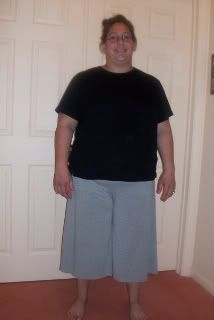


















.JPG)

















Current definitions of labor protraction and arrest may be too stringent, Dr. Jun Zhang of the National Institute of Child Health and Human Development, in Bethesda, Maryland said at the 2002 annual meeting of the Society for Maternal-Fetal Medicine. "And the long-accepted Friedman curve may not be an accurate description of normal labor progression, according to a new analysis of data from 1,329 nulliparous women aged 18-34 undergoing singleton, vertex presentation deliveries following spontaneous labor," said Dr. Zhang.Based on the speed of overall labor progression and current cervical dilation, Dr. Zhang and his colleagues calculated the expected traverse time for the cervix to reach the next centimeter and the expected rate of cervical dilation at each phase of labor. "Our curve is very different," Dr. Zhang said, pointing out that on his curve the average was 5.5 hours for progression from 4 cm to 10 cm, compared with 2.5 hours on the Friedman curve.
"We also didn't see a deceleration phase," he said, noting that in 1978 Friedman modified his curve, but the distinctive sharp upturn remained, as did the deceleration phase. "Our data suggest that most women enter active labor at different times, mostly between 3 cm and 5 cm dilation, and even in the active phase the speed of progression varies from person to person," he further explained. The median time for cervical dilation to progress from 4 cm to 5 cm in the present study is 1.7 hours. And for fetal descent, it could take 3 hours to progress from station +1 to +2, and an additional half hour from station +2 to delivery, he added. "Therefore, the definition of protracted descent or arrested descent appears to be too stringent in current practice," according to Dr. Zhang.
Generally, when there is a plateau (stopping of progress) of two hours in Friedman's curve while in a non-medicated active labor, or of three hours in active labor with an epidural, then "failure to progress" is the diagnosis and C-section is indicated. Of course, evaluation of the "4 Ps" -- Power, Psyche, Passenger, and Passageway (basically this means the force of labor, mental preparedness of the mother, the size and position of the baby, and the size of the birth canal) must be made to see if there is a correctable measure.
A long plateau is when a typical hospital provider generally starts to freak out (about malpractice, perhaps?) and push for interventions like breaking water, giving pitocin, and suggesting that the mom have an epidural so she can rest since she's obviously exhausted -- whether or not the client says she's tired. I've had a lot of overnight labors. I've only ever attended one where the woman has said she's exhausted. (And it was a woman who had not followed my suggestion that if her labor began while she was sleeping and she wasn't have contractions yet, she should try to go back to sleep, or at least rest. That might have made a difference.)
In a different setting, with a different provider, nobody freaks out when the labor doesn't progress as it "should." In fact, there are no "shoulds." As long as everyone is healthy -- baby's heart rate is fine; mom is eating and drinking and peeing and resting when she can -- the labor simply continues. The provider might consider some alternatives that would gently move the labor along -- changing positions frequently, homeopathic remedies, eating and drinking, resting, discussing any psychological issues the mom may have surrounding the labor and birth and impending motherhood -- but she doesn't force.
Trusting the process is somewhat different from sitting on my hands, which I wrote about last month. Sitting on my hands was at a birth where everything was progressing as it "should," but I felt like something needed to be done. See, I'm inexperienced! Trusting the process is about stepping back and looking at the facts and making decisions based on this individual situation, while taking into account the midwife's experiences.
A quick note about midwives who work in hospitals, also known as Certified Nurse Midwives. I believe that many of them trust the process, but the physician who is supervising them does not, and they are at his or her mercy. At a hospital birth recently, a machine kept malfunctioning and recording incorrect information; the baby was fine but it said that the baby was in distress. The CNM would come in and say that they had to get it fixed because if the attending physician saw the records, he would "go through the roof." Did she trust the process? Well, yeah, she knew the baby was fine. But she was under the direction of the physician who clearly did NOT trust it -- or maybe because he was supervising multiple labors simultaneously (without ever seeing anyone face-to-face) so he was unwilling to look at the individual labor.






Copyright 2009. Please do not copy or repost.
The first book about pregnancy I read was “The Girlfriends Guide to Pregnancy.” As much as I want to denigrate the content of the book, especially from the perspective of a student midwife, I enjoyed it at the time. I recall fondly laughing out loud at some of Vicki Iovine’s descriptions of various complaints of pregnancy, because I could relate!
 My first pregnancy was unplanned and unexpected, and initially I did not have the support of my family or my then-boyfriend, so laughter and lightness were hard to come by. Looking back, I cannot completely ignore that positive effect of reading it. I do remember specifically that she’d had two c-sections and two vaginal births, and she rated them about equally. At the time, I thought, “How is that possible? One is surgery!”
My first pregnancy was unplanned and unexpected, and initially I did not have the support of my family or my then-boyfriend, so laughter and lightness were hard to come by. Looking back, I cannot completely ignore that positive effect of reading it. I do remember specifically that she’d had two c-sections and two vaginal births, and she rated them about equally. At the time, I thought, “How is that possible? One is surgery!”
 Prior to reading it, I didn’t realize that I had a choice in anything relating to my pregnancy and birth. I just thought the doctor I was seeing – an obstetrician in a high-risk clinic; a maternal-fetal medicine specialist and a twins expert – had my best interest in mind. (In retrospect, I’m not saying he didn’t. But I assumed it because he was my doctor, not because of how he treated me.)
Prior to reading it, I didn’t realize that I had a choice in anything relating to my pregnancy and birth. I just thought the doctor I was seeing – an obstetrician in a high-risk clinic; a maternal-fetal medicine specialist and a twins expert – had my best interest in mind. (In retrospect, I’m not saying he didn’t. But I assumed it because he was my doctor, not because of how he treated me.)
I really credit reading “The Thinking Woman’s Guide” to helping empower me. In turn, I wanted to help empower others. Birth is so different when a woman can say, “I chose this,” versus “The doctor did this…” At first I thought that every woman wanted to be empowered during her pregnancy and birth. Later I realized that many don’t. However, those who do need the support of other empowered women, especially those who have had an empowered birth.







+(Small).jpg)